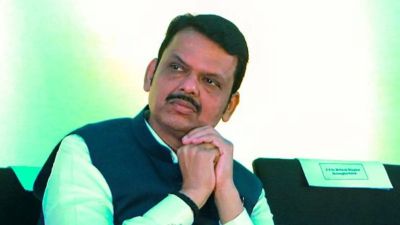India accelerating towards deal with CERN
India's nuclear scientists are on the verge of entering into a new, intensive collaboration8212;estimated at five million Swiss francs151...

India8217;s nuclear scientists are on the verge of entering into a new, intensive collaboration8212;estimated at five million Swiss francs8212;with the European Organisation for Nuclear Research CERN, the world8217;s largest particle physics centre near Geneva.
While the Indo-US nuclear dialogue is caught in hard talk, this is one R038;D deal on 8216;8216;further development of novel accelerator technologies8217;8217; that the Department of Atomic Energy DAE is ready to push ahead.
8216;8216;The parties shall use the results of their cooperation strictly for non-military purposes only,8217;8217; the agreement says. It will create a Novel Accelerator Technology Fund8212;NAT Fund8212;to give DAE scientists access to CERN and start a specialised course in particle physics technologies for Indian university students, with international faculty and CERN help.
8216;8216;The agreement will be signed in a matter of days,8217;8217; says Jos Engelen, chief scientific officer and deputy director-general, CERN. 8216;8216;It is not a passive agreement. The intensity of collaboration is higher this time.8217;8217;
Anil Kakodkar, chairman of the Atomic Energy Commission and DAE secretary, told The Indian Express that the collaboration would be signed soon.
8216;8216;That8217;s correct,8217;8217; said Kakodkar. 8216;8216;It8217;s a good thing for R038;D and building up industrial capability.8217;8217; At CERN8212;here India has 8216;observer8217; status8212;scientists study the building blocks of matter with tools called accelerators to accelerate particles to almost the speed of light, smash them into other particles at very high energies, and study the collisions with detectors that make the particles visible.
TIFR is making parts of new detectors. 8216;We have ideas for new accelerators we want at CERN and for modernising the complex,8217;8217; says Engelen, visiting the Tata Institute of Fundamental Research after meeting Kakodkar. 8216;8216;We8217;re making a design, and Indians are interested in the design, and providing parts of the accelerator.8217;8217;
8216;8216;We make complex equipment here at cheaper prices than Europe,8217;8217; says Kakodkar. 8216;8216;Whatever India contributes in kind will be assessed. Half the value of that assessment will go into the fund used to send scientists to CERN, and also support the bilateral cooperation in the field.8217;8217;
Engelen agrees: 8216;8216;India is interested in training its scientists and engineers in a bid to perfect its accelerator technology.8217;8217;
The collaboration was shaped after President Abdul Kalam visited CERN last year and signed a declaration of intent. 8216;
8216;It was a matter of months after Kalam8217;s visit to put the agreement together,8217;8217; adds Engelen, adding that his technical team found Kalam a politician they could discuss physics with.
8216;8216;Kalam really knows his physics,8217;8217; emphasises Wolfgang von Ruden, who heads IT at CERN.
- 01
- 02
- 03
- 04
- 05






























